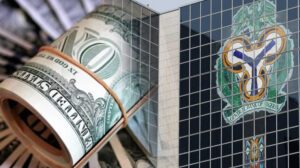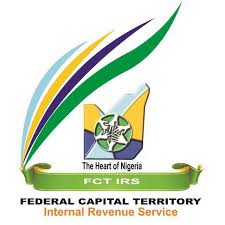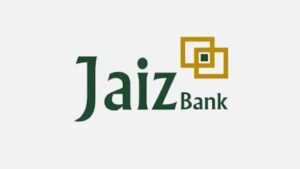Presidency in talks with W’Bank for $1.5bn loan
…As domestic debt surges to N54.13trn
By Sodiq Adelakun
In a bid to enhance the delivery of basic education and primary healthcare services, the Bola Tinubu-led Federal Government of Nigeria is currently in talks with the World Bank for a fresh $1.5 billion loan.
Abbreviated as HOPE, the loan is titled ‘Nigeria Human Capital for Opportunities and Empowerment’ based on information obtained from the website of the Washington-based institution.
The objective of the loan is “to strengthen systems for improved delivery of basic education and primary health services in participating states.”
The loan is meant to be implemented in 2024 pending approval by the board of the World Bank Group.
It was also discovered that there was another loan titled: ‘Nigeria Macro-Fiscal Reforms for Economic Stability and Economic Transformation.’
This signifies the importance of thorough evaluation and consideration of the loan’s potential impact on Nigeria’s development goals.
However, the government’s commitment to engaging international financial institutions highlights its determination to prioritise human capital development and create sustainable opportunities for its citizens.
The loan is not the only financial agreement Nigeria is pursuing with the World Bank. Another loan titled ‘Nigeria Macro-Fiscal Reforms for Economic Stability and Economic Transformation’ is also under consideration.
This demonstrates the government’s multi-faceted approach to address various aspects of the country’s development challenges.
In the same vein, implementing a loan of this magnitude comes with its own set of challenges. Ensuring effective utilisation of funds, transparency, and accountability will be crucial to maximise the loan’s impact.
Additionally, addressing systemic issues such as infrastructure gaps, teacher training, and healthcare accessibility will require concerted efforts from all stakeholders involved.
However, if executed efficiently, the loan has the potential to empower millions of Nigerians, providing them with the necessary tools to succeed and contribute to the nation’s progress.
In a surprising turn of events, Nigeria has been granted yet another loan from the World Bank, although the exact amount remains undisclosed.
This news comes alongside discussions for five other potential loan projects, including initiatives for internally displaced persons, rural access and agricultural marketing, renewable energy, sustainable power and irrigation, and resource mobilisation for reforms.
The outcome of these discussions will determine whether these loans will be put into action or abandoned altogether.
Since President Bola Tinubu took office, Nigeria has already secured a staggering $1.95 billion in loans from the World Bank within the first four months of his administration.
The first loan, approved in June 2023, aimed to bolster Nigeria’s power sector with a hefty $750 million. Shortly after, in June 2023, a $500 million loan was granted to support women’s empowerment.
In September 2023, an additional $700 million loan was approved to enhance adolescent girls’ learning and empowerment.
The World Bank, comprised of the International Bank for Reconstruction and Development (IBRD) and the International Development Association (IDA), has been a long-standing source of loans for Nigeria.
The IBRD provides loans to middle-income and creditworthy low-income countries, while the IDA offers concessional loans and grants to the poorest nations.
With a staggering debt of $14.51 billion owed to the World Bank as of June 30, 2023, Nigeria heavily relies on this multilateral creditor.
The breakdown reveals that Nigeria’s debt consists of $14.51 billion in IDA debt and $485.75 million in IBRD debt.
These figures contribute to Nigeria’s total public debt, which recently reached a staggering N87.38 trillion by the end of the second quarter, representing a significant increase compared to the previous quarter.
As Nigeria continues to navigate its financial landscape, the acquisition of these loans will undoubtedly impact the country’s economic future.
Only time will tell how these funds will be utilised and whether they will bring about the desired outcomes for Nigeria’s development and growth.
Further breakdown shows that Nigeria has a total domestic debt of N54.13trillion and total external debt of N33.25trillion.
The domestic debt accounts for 61.95 percent of the total debt, while the external debt makes up 38.05 percent.
Both domestic and external debts have seen a significant increase in the past three months.
Domestic debt rose by 79.18 percent from N30.21tn, while external debt rose by 69.28 percent from N19.64tn in the first quarter of 2023.
The Debt Management Office (DMO) has warned that the projected revenue of N10trillionn for 2023 cannot support further borrowing by the Federal Government.
The debt service-to-revenue ratio of 73.5 percent for this year is considered high and poses a threat to debt sustainability.
Meanwhile, the current revenue profile of the government is insufficient to support higher levels of borrowing.
The DMO has emphasised the need for the government to focus on revenue generation by implementing revenue mobilisation initiatives and reforms. It suggested increasing the country’s tax revenue to Gross Domestic Product ratio from about seven percent to match that of its peers.
The DMO also states that the government is nearing its self-imposed debt limit of 40 percent, which will restrict its ability to borrow extensively.
To reduce borrowing and budget deficits, the DMO has recommended encouraging the private sector to fund capital projects through public-private partnership schemes




